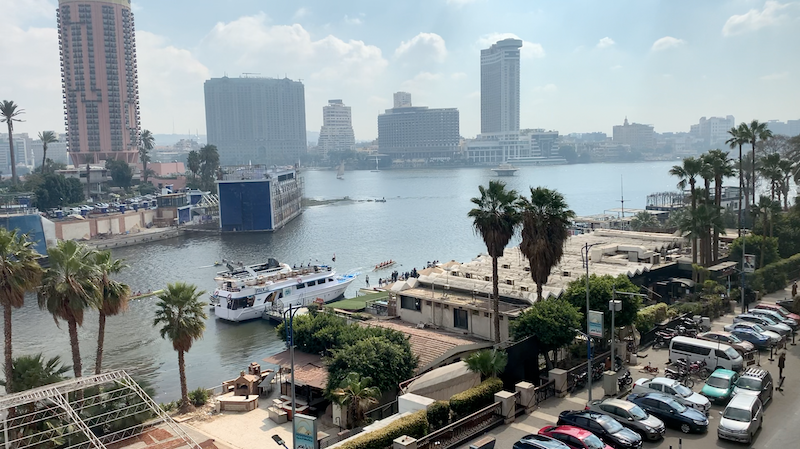Egypt is the largest beneficiary of aid granted by the member states of the Cooperation Council for the Arab States of the Gulf (CCGA), accounting for nearly 30% of the total over the period 1963-2022, or more than USD 100 billion.
The Gulf countries play a historic commercial role in the Egyptian economy, representing on average 14.9% of foreign trade over the last decade. Traditional investors in the country, they are also strengthening their presence, including in new sectors, in line with their diversification strategies.
In response to the successive crises Egypt has experienced, the financial support of the GCC countries has proven systematic, with financing granted up to 4.5 times higher than that of the IMF between 1974 and 2022.
With a stock of USD 31 billion in deposits at the Egyptian Central Bank at the end of December 2023, or 75% of reserves, the Gulf countries are establishing themselves as key players in financial and economic stability in Egypt. This year, the UAE’s massive investment of USD 35 billion (including USD 11 billion in conversion of deposits with the ECB and USD 24 billion in “fresh” capital) played a major role in restoring investor confidence in Egypt.
It also provided the Egyptian authorities with the room for maneuver necessary to float the currency, thus facilitating the intervention of international donors – including the IMF. However, questions remain about the allocation of the 50% of incoming capital (USD 12 billion) not allocated to debt reduction.
Over the last decade, the CCEAG countries have been more attentive than in the past to obtaining returns on investments and therefore more careful about the counterparts for granting their financing.
A new mode of intervention initiated in 2016 now translates into direct investment – notably via sovereign wealth funds – or project aid, taking greater account of the structural reforms defended by the IMF aimed, in particular, at ensuring the sustainability of public debt (exchange rate policy, budgetary consolidation and improvement of the business environment).
Furthermore, as a gateway to Africa and also a member of the BRICS, which it joined on January 1, 2024 at the same time as the UAE, Egypt also offers a strategic and balanced location allowing the Gulf countries to take advantage of various initiatives, such as the African Continental Free Trade Area (AfCFTA).
Thus, from 2022, the governments and sovereign wealth funds of the GCC countries have committed to strengthening bilateral cooperation in key sectors (tourism, energy, transport, logistics) and also in the Egyptian authorities’ public asset disposal program (Saudi Arabia and the UAE account for 80% of the disposals already concluded).
The pragmatism characterizing this new approach and the intensity of the links between the Gulf countries and Egypt favor a joint approach to regional issues while enhancing Egypt’s positioning despite its persistent economic difficulties.
Source: French Embassy in Egypt








Réagissez à cet article